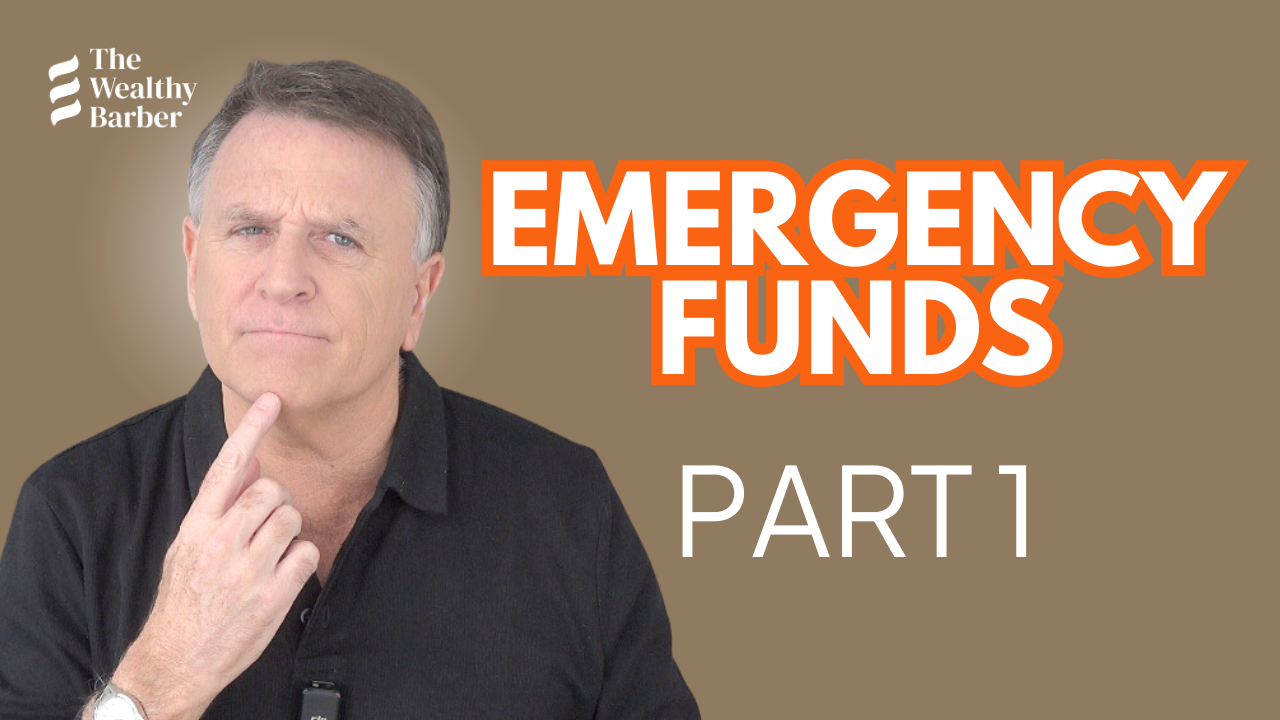Emergency Funds (Part 2): How Much Do You Need?
A few things about emergency funds (one mathematical, two psychological) that don’t get enough attention. Sounds boring — isn’t!
💈💈💈
Okay, part two on emergency funds. I am fascinated by emergency funds. Has anyone ever said that before? Can you see why I live alone? Emergency funds seem so straightforward — here’s your rule of thumb — it’s just common sense, basic math — let’s move on to the next topic. Nope. As mentioned last video, they’re actually a bit tricky. And I’m telling you, psychology comes into play a lot here — both in a positive and a negative way.
More in a moment. The basic advice you hear over and over again is that everybody should have enough in their emergency fund to cover six to nine months worth of expenses. Some even say six to nine months worth of net income, a bigger number, of course, assuming you’re spending less than you make. But, what if one of the couples are looking at this and they’re both teachers? There’s almost no risk of job loss and they just bought a new build. And another couple, on the other hand, both have jobs in residential construction. Cyclical industry. And they just bought a sixty-year-old home. Does it make any sense for those two couples to follow the same guideline?
I don’t think so. In fact, depending upon other details, you could make a very strong case that couple number one needs in a small, small emergency fund, one-to-two months worth of expenses. And couple number two, again, depending on other details, may need a year’s worth. Going back to couple number one, remember from our last video, there’s a cost to this insurance.
Don’t build up a bigger emergency fund than you truly need. Think all of this through. Adjust from the guidelines as to what makes sense based on your details. Okay, two points around the psychology of emergency funds that are very important and don’t get nearly enough attention. The first is that for many people, having an emergency fund not only provides a safety net, but also great peace of mind.
They need that cushion, even if Dave Chilton would argue theirs is a little bit too big, they need it to sleep at night. Hey, sleep’s important. So that comfort has to be factored in. I have a close friend like that. One US expert has explained that some people are so obsessed with having an emergency fund at a certain level that they can’t even spend down the money when they have an emergency. Instead, they scramble and borrow money from family or, often imprudently, sell long-term investments. Long-term investments that may also be down in value as often, and sadly, frequently the same thing that causes a job loss causes a tough investment climate — a struggling economy of course.
The second psychological component of this subject is something I have seen over and over in my career. So many people dip into their emergency funds for non-emergencies and then, of course, rationalize the spending. The temptation of cash just sitting there overwhelms them on a cold February night when their friends are posting pictures from Florida on IG.
I get it. I’ve seen everything from hot tubs to ATVs to jewelry purchased with emergency-fund money. And then, obviously, the fund has to be built back up again to follow the same guideline before retirement planning and education funding are tackled. And, even more troubling, the cycle often repeats. If you lack self-control, don’t we all, not a bad idea to put some sort of barrier between you and the money. Like a more disciplined spouse, for example. I told you this was interesting stuff! Okay, we’ll do another video soon on alternative ways to have a safety net available. Some I really like, including one I’m seeing more and more of.
Feel Confident About Your Finances
Sign up for our Weekly Round-Up of new videos and podcasts released over the past seven days. We won’t spam you or try to sell you a course—promise!



